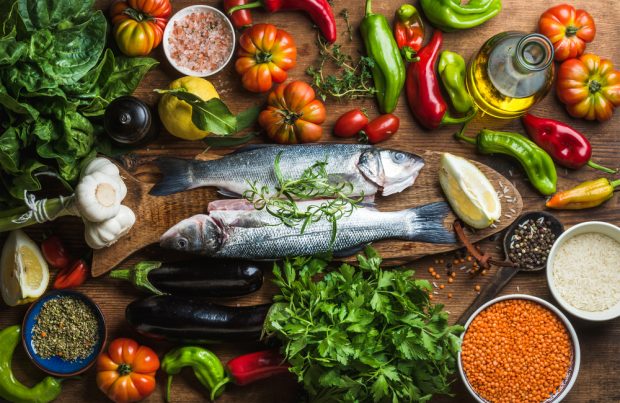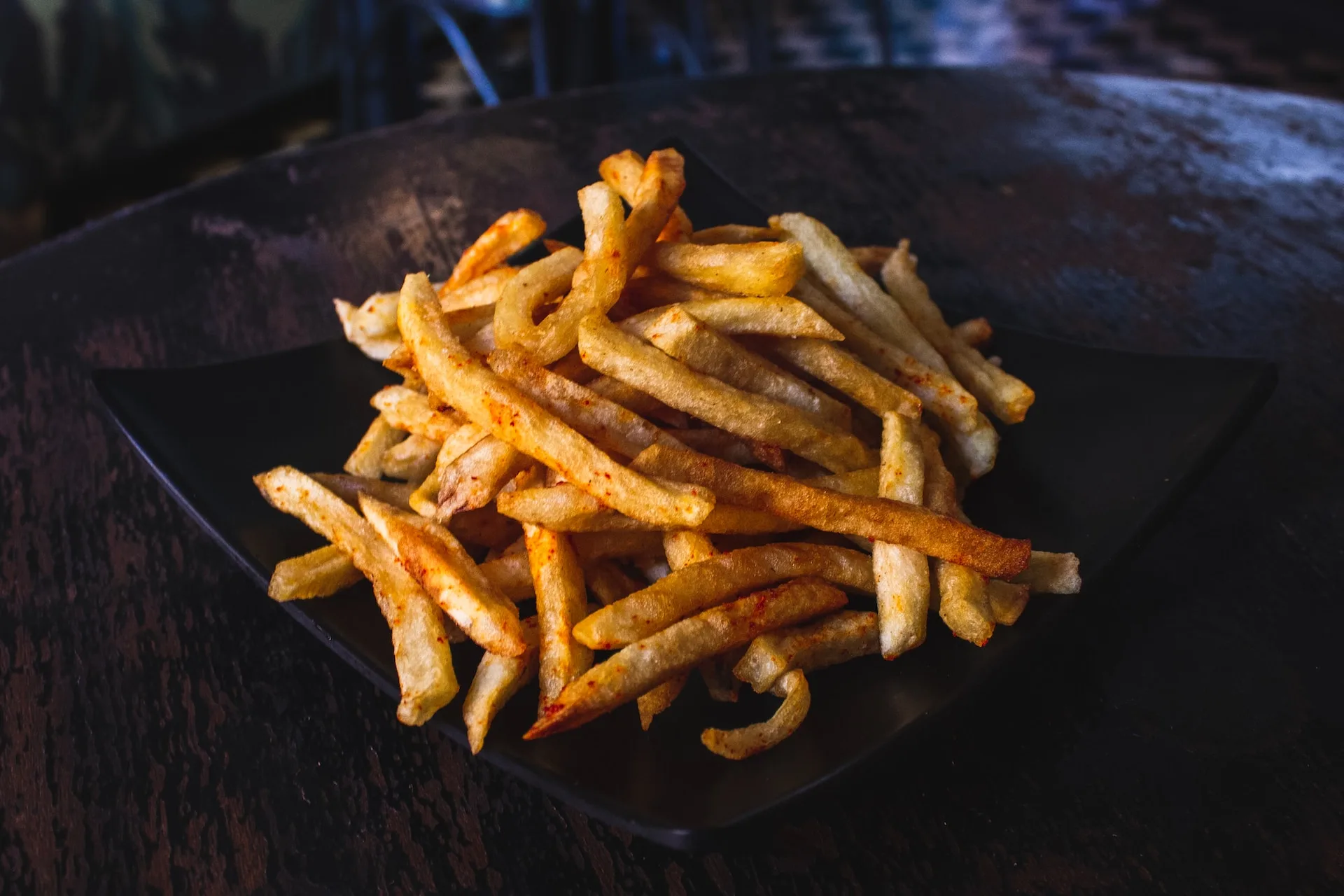According to the World Health Organization, 5% of the world’s population currently suffers from depression. With 2020 seeing a worldwide increase in depression and anxiety by 27.6% and 25.6%, respectively, this number should come as no surprise. So what exactly is the source of these mental health statistics?
While the COVID-19 pandemic, a looming financial crisis, and climate crisis are each proven theories, a recent study gives credence to the old adage that you are what you eat. If you’re a fan of French fries, you may be eating poor mental health.
The link between fried food and mental health
According to research, 25-36% of North American adults usually consume fried foods from fast food restaurants on a daily basis. While convenient and easier on the wallet, fried foods can be extremely detrimental to your longevity. This is because the frying process not only alters the nutritional composition of foods, but also produces harmful chemicals that can increase the risk for obesity, metabolic syndrome, and neurological disorders.
While past research often focuses on the effects of fried foods on physical health, a recent study decided to examine how these foods may influence mental health.
Conducted at the St. Louis School of Medicine at Washington University, a group of Chinese researchers analyzed the data of 140,728 people, courtesy of the UK Biobank. The data featured their fried food consumption behaviors, as well as their incidence of anxiety and depression. The participants were, on average, followed up for a period of 11.3 years.
Towards the end of the study, the researchers identified 8,294 cases of anxiety and 12,735 cases of depression.
Do French fries cause depression and anxiety?
“Our population-based study…revealed that frequent fried food consumption, especially fried potato consumption, is strongly associated with 12% and 7% higher risk of anxiety and depression, respectively.”
According to the findings, which were published in PNAS, the consumption of fried foods, particularly fried potatoes, not only carried a higher risk of anxiety and depression, but the risk was more pronounced among young men and younger consumers.
As for the reason for this risk?
A chemical called acrylamide, which forms during high-temperature cooking, can trigger inflammation, which can affect mental health.
To confirm their findings, the researchers exposed zebrafish to acrylamide for 180 days. They found that zebrafish displayed anxiety- and depressive-like behaviors(they did acknowledge that fish behavior can’t be directly compared to human mental health conditions).
While research on the human health effects of acrylamide is limited, the Centers for Disease Control and Prevention (CDC) found that in animals, long-term exposure to acrylamide can cause reproductive problems, nerve damage, and cancer.
Experts don’t blame French fries
I’ve worked in a hospital setting for over a decade helping people who experience severe depression.
French fries don’t land people in hospital.
Science and mental health literacy involves looking beyond hyped-up headlines and understanding that mental illness is multi-causal. pic.twitter.com/yFkN2JqoNX
— Dr. Jonathan N. Stea (@jonathanstea) April 25, 2023
Despite the findings, experts aren’t completely sold on the idea of a fast food order causing depression. For one, the study’s results are still preliminary, and the findings did not prove a causal link.
Dr. Michael J. McGrath is a board-certified psychiatrist and medical director of the Ohana Luxury Alcohol Rehab. Dr. McGarth told Medical News Today that other factors beyond acrylamide may be responsible for the effects of fried food on mental health. He added that the results could be because those with depression and anxiety are more likely to turn to fried foods.
What’s more, acrylamide isn’t only produced by frying. In an email written to CNN, Dr. Walter Willett, a professor of epidemiology and nutrition at Harvard’s T.H. Chan School of Public Health, revealed that acrylamide is present in coffee, because of the roasting of the beans, and in toast, because “heating carbohydrates together with protein can do this.”
“To really prove causation, you would need to take a large group of very similar people. Feed half the group more fried foods, and half less. If more anxiety and depression occurs in high fried foods going forward, then you have your proof so-to-speak,” Willett noted.
Healthier food choices for mental health
Yes, we can’t prove that French fries can cause depression and anxiety. Yet we know that fried foods are not good for your health and an unhealthy body translates to an unhealthy mind.
So, how can you remove fried foods from your life?
If you’re a lover of potatoes, stop frying them and instead choose to poach, stew, steam, and boil them.
If you’re out eating at a restaurant, instead of asking for ‘fries with that’, why not pair your meal with a salad instead?
But, if you’re looking for a diet that will protect both your physical and mental health, might we recommend the Mediterranean diet?
“There are no specific foods that have been proven to treat or prevent depression or anxiety,” said Dr. Kelly Johnson-Arbor, Medical Toxicologist, Co-Medical Director, and Interim Executive Director at the National Capital Poison Center, to Medical News Today.
“However, the Mediterranean diet, which includes the consumption of vegetables, fruits, beans, and whole grains, is associated with lower levels of C-reactive protein compared with the ‘Western’ diet.”

Foxys Forest Manufacture/Shutterstock
C-reactive protein is associated with inflammation, Dr. Johnson Arbor believes that lower levels of C-reactive protein may have a favorable impact on the development of depression, anxiety, and other conditions affected by inflammation.
Besides eating well, you can also protect your mental health by exercising, getting quality sleep, avoiding tobacco and alcohol, and prioritizing your relationships.
References
Dasa, Fikiru & Abera Teka, Tilahun. (2020). Why Fried Food is Unhealthy: Heat Induced Food Toxicants and Associated Health Risks.
Okruszek, Ł., Aniszewska-Stańczuk, A., Piejka, A., Wiśniewska, M., & Żurek, K. (2020). Safe but Lonely? Loneliness, Anxiety, and Depression Symptoms and COVID-19. Frontiers in psychology, 11, 579181. https://doi.org/10.3389/fpsyg.2020.579181
Sun, Y., Liu, B., Snetselaar, L. G., Robinson, J. G., Wallace, R. B., Peterson, L. L., & Bao, W. (2019). Association of fried food consumption with all cause, cardiovascular, and cancer mortality: prospective cohort study. BMJ (Clinical research ed.), 364, k5420. https://doi.org/10.1136/bmj.k5420
Wang, A., Wan, X., Zhuang, P., Jia, W., Ao, Y., Liu, X., Tian, Y., Zhu, L., Huang, Y., Yao, J., Wang, B., Wu, Y., Xu, Z., Wang, J., Yao, W., Jiao, J., & Zhang, Y. (2023). High fried food consumption impacts anxiety and depression due to lipid metabolism disturbance and neuroinflammation. Proceedings of the National Academy of Sciences of the United States of America, 120(18), e2221097120. https://doi.org/10.1073/pnas.2221097120





![women [longevity live]](https://longevitylive.com/wp-content/uploads/2020/01/photo-of-women-walking-down-the-street-1116984-100x100.jpg)










